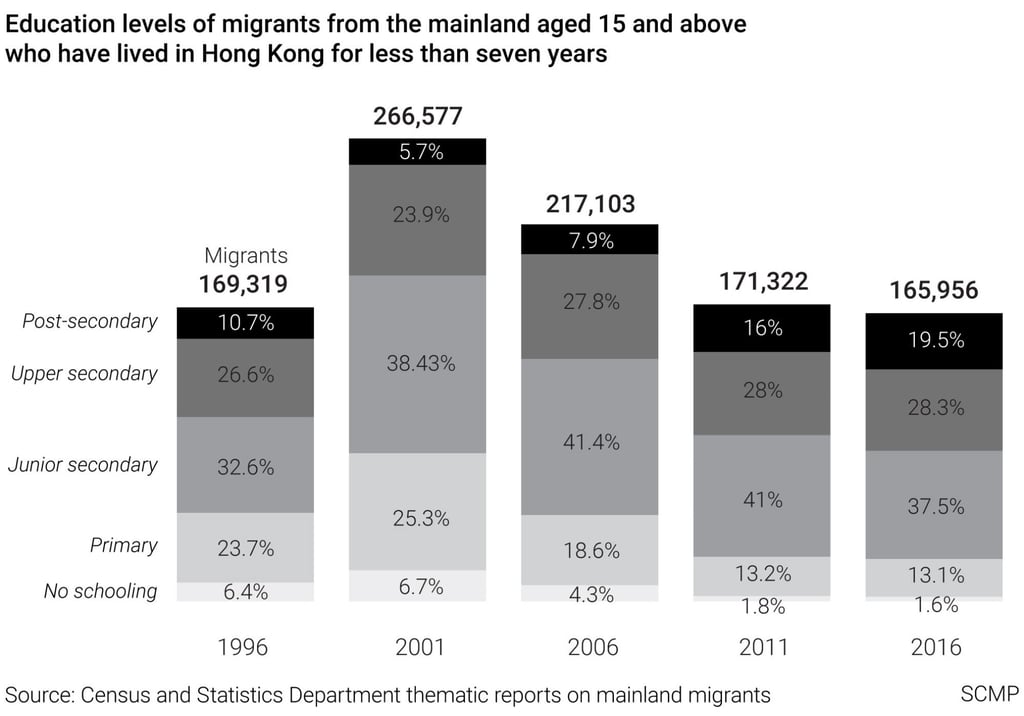Hongkongers’ prejudices persist even as mainland Chinese migrants become better educated, speak Cantonese and English, and hold good jobs
- Nasty stereotypes create a hostile environment for new immigrants to assimilate, population expert says
- ‘Loss for whole society’ if some in Hong Kong refuse to recognise strengths of mainland arrivals

Xie Qiongling has never forgotten how she waited five years in her native Fujian province, in mainland China, for permission to be with her husband in Hong Kong.
A Hong Kong resident, he was working as a waiter at the time. She applied in 1999 to join him under the one-way permit scheme introduced by China in the early 1980s to allow mainlanders to move to the city, mainly to reunite with family members.
The approval from the mainland authorities only arrived in 2004. After she moved to Hong Kong, the couple lived in a subdivided flat in Sham Shui Po.

“I could speak basic Cantonese, but my accent was an issue. People at the market liked to mock my accent. Some would just ignore me, saying they did not understand what I said. I knew some called me ‘that mainland woman’ behind my back,” recalled Xie, now 46.
“I did not care what other people said about me. After all, I had settled in Hong Kong and I considered myself a member of the community. I felt I should be a contributor, not a troublemaker.”
The couple have two children, a son, now 22, and a daughter, 14, who were born in Hong Kong.
Xie found part-time work as a restaurant cleaner and office janitor to help support the family, and did not think they should rely on public help.
She also attended classes organised by welfare groups in her neighbourhood to improve her Cantonese and brush up on Hong Kong culture.